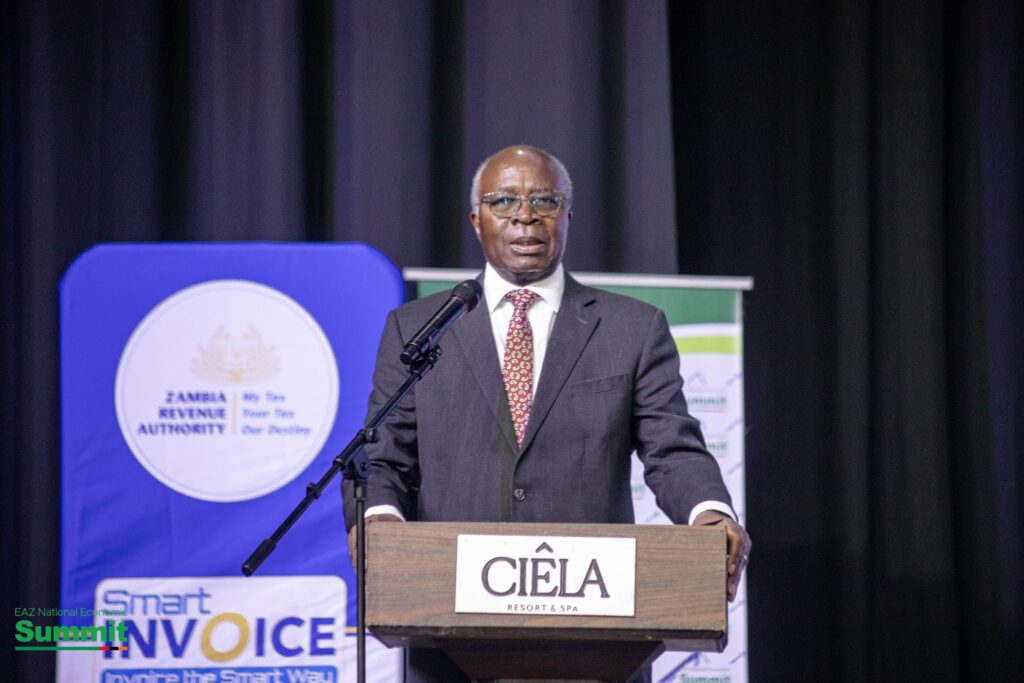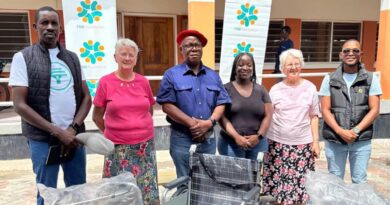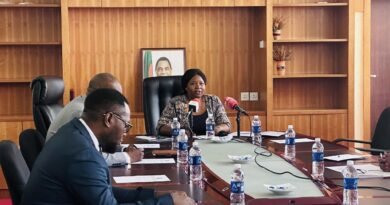Minister Musokotwane Stresses Objectivity and Climate-Conscious Growth at EAZ Summit
Zambia’s Minister of Finance and National Planning, Dr. Situmbeko Musokotwane, has emphasized the need for the Economics Association of Zambia (EAZ) to maintain objectivity and independence from political influence.
Addressing economists at the recently concluded EAZ National Economic Summit, Dr. Musokotwane highlighted that impartial assessments are crucial for accurate policy formulation, public trust, and the EAZ’s credibility.
“Political influence can lead to biased analyses, undermine stakeholder trust, result in ineffective policies, and hinder development,” said Dr. Musokotwane.
He reiterated that unbiased economic assessments are vital for informed decision-making and sustainable growth. The minister praised the EAZ for its recent shift towards professionalism and a renewed focus on objective analysis.
Dr. Musokotwane commended the association for its progress, noting a significant reduction in political involvement. “This change reflects a commitment to professional respect and integrity, with increased responsibility to address complex issues in an unbiased manner,” he stated.
He called on the EAZ to continue providing clear, neutral perspectives, essential for guiding society on critical economic matters.
Highlighting the summit’s focus on advancing the EAZ’s goals, Dr. Musokotwane expressed confidence in the association’s ability to meet high standards of objectivity and professionalism.
He also outlined a robust strategy for achieving sustainable economic transformation, emphasizing the integration of climate change adaptation and sustainable financing mechanisms into Zambia’s economic strategy.
“Climate resilience and sustainable financing are crucial to managing financial risks and avoiding debt traps,” Dr. Musokotwane asserted. He stressed that economic transformation should address unemployment, education gaps, and infrastructure deficiencies, prioritizing long-term growth over short-term gains.
Drawing on international examples, Dr. Musokotwane cited China’s economic reforms and Vietnam’s post-war reconstruction as models for sustained progress. He called for a comprehensive approach aligned with global best practices to ensure the welfare of all Zambians.
The minister also addressed the challenges of economic shifts, including the need for personal adaptability and changes in mindset. He highlighted the importance of enhancing productivity and efficiency in response to global competition and environmental challenges.
Dr. Musokotwane identified key growth sectors such as mining, tourism, agriculture, and energy, with a particular emphasis on increasing copper production. “Copper is crucial for generating foreign exchange and supporting green technologies,” he noted.
Recent tax policy reforms, though seen by some as tax holidays, are necessary for attracting investment, as evidenced by the opening of Africa’s largest nickel mine and the creation of nearly 9,000 jobs.
The government anticipates that copper production will exceed 1 million tons by 2027, generating more jobs and tax revenue for reinvestment into the economy. Dr. Musokotwane expressed optimism about the long-term outlook, believing that strategic investments and policy changes will strengthen Zambia’s economy.
He also addressed the economic consequences of droughts, emphasizing the need for transformed drought response strategies, continued support for farmers, and incentives for private sector investments in energy and other sectors.
Highlighting that 75% of Zambia’s debt is concessional and 25% is commercial, Dr. Musokotwane mentioned ongoing efforts to restructure this debt and address infrastructure needs through Public-Private Partnerships (PPP).
The minister underscored the importance of Foreign Direct Investment (FDI), citing successful examples from the Philippines and China as opportunities for economic growth and increased foreign exchange through export-oriented projects.



